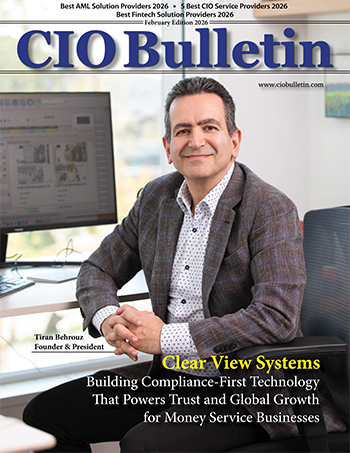50 Best Companies to Watch 2022
CIO Bulletin

OwnBackup is a leading SaaS data protection platform for some of the largest SaaS ecosystems in the world, including Salesforce, Microsoft Dynamics 365, and ServiceNow. Through capabilities like data security, backup and recovery, archiving, and sandbox seeding, OwnBackup empowers organizations worldwide to manage and protect the mission-critical data that drives their business. With over 5,000 customers, we are ranked on the Forbes Cloud 100 as one of the world's top private cloud companies, and have raised over $500 million in venture funding. In 2003, OwnBackup’s Co-Founder Ariel Berkman began working on recovering data from various physical digital media. Eventually, he started to experiment to see if he could potentially recover lost data from the cloud, and decided to test out a solution within the B2B space. That’s when Ariel and OwnBackup’s CEO Sam Gutmann realized that all SaaS companies operate using a shared responsibility model, and there was a huge opportunity to protect the cloud data that these companies relied on. What does OwnBackup mean by shared responsibility? Think about your CRM platform as a multi-tenant apartment building.
As a renter, you shouldn’t have to worry about the building’s structural integrity, power going out, or the maintenance of shared spaces and amenities. But what happens on the inside of your unit (i.e., your instance of Salesforce), like accidentally deleting data, is your responsibility. It’s this concept that has led OwnBackup to where it is today: the number one SaaS Data Protection Platform with over 4,700 customers across every industry.
OwnBackup for ServiceNow
User-inflicted data loss and corruption are all-to-common in cloud applications like ServiceNow. Typically, these incidents occur due to human error, erroneous integrations, upgrades, bad code, and even malicious intent. While ServiceNow is responsible for the availability and uptime of their platform, your organization is ultimately the steward of the data stored in cloud applications. Therefore, it’s your responsibility to ensure that the data you need can be recovered quickly when accidental loss or corruption occurs. ServiceNow does have some out-of-the-box, native backup capabilities, but their limitations could prevent you from addressing key requirements of a backup and recovery strategy. Let’s look at a few of these related specifically to backups, and why it makes sense to extend the native backup capabilities. With ServiceNow, you can retain monthly backups of your production instance for up to 28 days, and daily backups for seven days, periods which you cannot extend. This is problematic if you’re counting on your backups to meet data retention requirements for regulatory purposes, where mandated periods are usually measured in years. Full backups are performed every seven days (weekly) and differential backups are taken every 24 hours (daily), however the exact timing of these backups is not guaranteed. The system finds the best time for backups within a 24-hour period and customers cannot modify that time. This limitation undercuts one of the primary use cases of a backup and recovery strategy, which is to provide a safety net during planned changes to an instance.
OwnBackup Recover for ServiceNow improves data resilience and compliance by equipping organizations with better control over backup timing and retention, proactive notification of unusual data loss or corruption, and the ability to quickly restore data - from entire instances down to individual records - in a self-service fashion. With Recover, you can run on-demand backups before and after significant changes to your instances such as upgrades, migrations, new customizations and integrations. You can also compare pre and post-change backups to verify there’s no unexpected data loss or corruption, and rollback changes as needed. OwnBackup allows you to tailor retention policies for every instance to keep immutable copies for exactly the right time period. Retain daily backups for up to 10 years and monthly backups for up to 99 years. OwnBackup also makes it easy to quickly understand what your data looked like historically. . Within the application, you can answer questions about past history using keyword searches across backups, files and attachments, as well as zero in on precise data by focusing searches on specific items.
Consider switching to OwnBackup
Your data is one of the most important assets you have in understanding your customers and driving your business forward. If your data gets corrupted or accidentally deleted and you have no way of recovering that data, your company is at risk of losing everything. Therefore, finding the right backup and recovery vendor should be a top priority. But what happens when you realize the solution you had chosen may not be the best fit? Choosing the right backup system can be overwhelming to begin with. Equally challenging is figuring out how to switch to a new different vendor after realizing your current solution doesn’t match your needs. One of the most convenient features of a backup vendor is relying on its expertise when it comes to data governance and compliance regulations. A good backup provider should be able to monitor regulations worldwide and share as much knowledge with you to ensure your data is compliant regardless of your geographic location. At OwnBackup, the team has helped nearly 5,000 companies worldwide protect their data through services like data security, backup and recovery, archiving, and sandbox seeding. OwnBackup offers a comprehensive solution within the Salesforce, Microsoft Dynamics 365, and ServiceNow ecosystems and provide a cost-effective solution to safeguard your data no matter the cost.
Sam Gutmann

Insurance and capital markets







